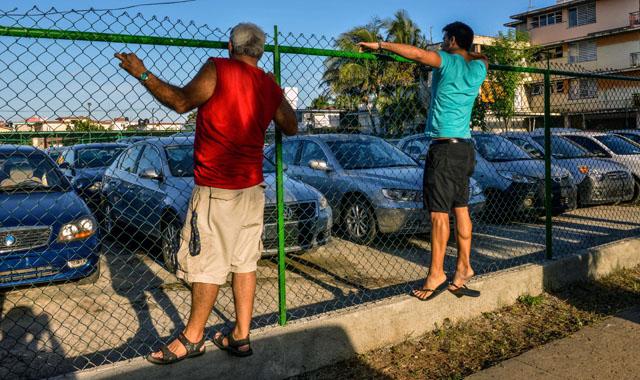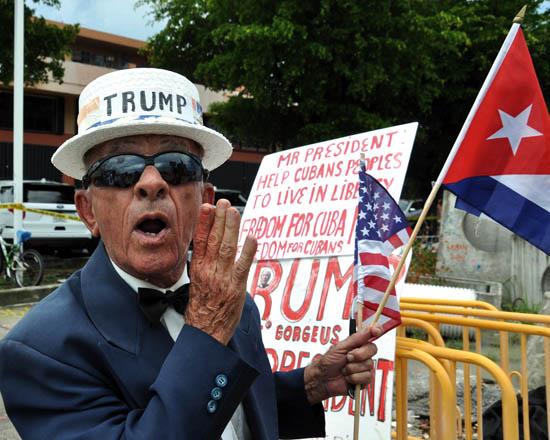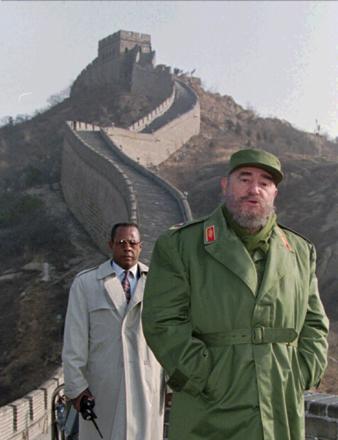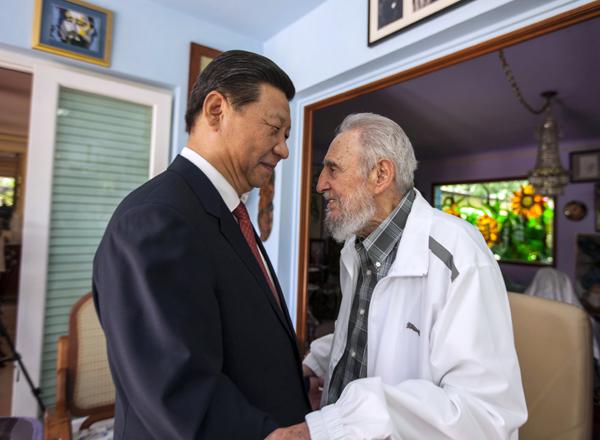HAVANA — Cubans hoping to snap up imported cars last week after the relaxation of restrictions dating back half a century had a shock with prices way out the reach of anyone but the elite.
The communist regime s easing of ban on car imports, marked the end of an era that made icons of Cuba’s vintage automobiles.
Opening Cuba’s domestic car market to imports was expected to have fateful consequences for the lovingly maintained 1950s Chevys, Fords and Pontiacs that have survived a 50-year-old US embargo.
But there was anger and disappointment when prospective buyers in Havana laid eyes on the prices of new and used vehicles, AFP reporters said.
A swish Peugeot 4008 SUV was going for $239,500 at the Sasa dealer in the capital — nearly five times what it costs in Europe.
Used vehicles were also available in the capital, but at prices that most people in Cuba can only dream of.
A 2010 Hyundai Sonata was going for $60,000 and a Volkswagen Passat in the same year had a price tag of $67,500.
“I was thinking of buying a car, and I had about $20,000 to spend, but it’s impossible,” one disappointed buyer, Dorian Lopez, said, staring incredulously at a Sasa price list.
“With these prices, I not only cannot buy, but I cannot even dream,” lamented the Cuban musician Alfred Thompson, at another dealer, in the west of Havana.
The official newspaper Granma said last month that the imported cars would be sold at market prices, a step designed to gradually free up retail sales of all manner of vehicles — automobiles, vans, trucks and motorcycles — and end the practice of granting some Cubans special permission to bring in vehicles as a privilege.
The changes are a long-awaited element of President Raul Castro’s attempts to gradually liberalise Cuba’s Soviet-style economy.
“It is monstrous. They say that the cars are for sale in Cuba, but it is a lack of respect for the people, no one can buy at this price, it’s impossible,” said Bernardo Garcia, 35.
No official figures are available on Cuba’s automobile fleet, but experts believe there are around 60,000 American cars still circulating on the island.
Mixed in with them are Soviet-made Ladas and Moskvich cars made in the 1970s and ‘80s and more modern, usually Asian-made, vehicles imported by the government.
The new legislation also eliminates the “Letters of Authorisation” issued each year to a few thousand privileged Cubans to enable them to buy a car.
“We were miserably deceived, it is an abuse, it has been two years since I have the letter but that is for millionaires, not the people,” said Mayra Echarpe, 57, of the national centre for popular music in Havana.
Separately, privately-owned small retailers in Cuba are defying a government order to stop selling imported clothing or face stiff fines.
Imported clothing is in high demand in Cuba because foreign apparel is cheaper and of higher quality than threads sold in state-run stores.
“We have been here for three years selling without a problem and abiding by the law, and now they say that this is over?” asked Nadia Martinez, 32. “We are not going to close our business.”
Martinez has a government licence to work as a seamstress, but in practice runs a modestly successful business selling imported clothes on Galiano Street, one of Havana’s busiest commercial avenues.
The clothes are not imported by the government, but rather brought in by Cubans traveling to places like Ecuador, Mexico, Spain and the United States.
Until now, the government had seemed to look the other way as she stretched the scope of her legal employment. But it now appears it may regulate away her economic success story.
Castro expanded the list of government-approved self-employment occupations in 2010 as part of a very gradual reform of its Soviet-style economy.
Castro announced that over the following years he would also be slashing the country’s five-million strong bureaucracy — this on an island with a population of about 11 million — as a cost-cutting measure.
Today more than 430,000 Cubans work for themselves or in small businesses. Authorised job categories include restaurant owners, barbers, electricians, plumbers, mechanics and other skilled trades.
Privately owned beauty salons and family-owned restaurants known as “paladares” proliferated, often operating from the back of people’s houses.
The government, however, remains the country’s largest employer, and central planners still try to control the cash-strapped economy.
Deputy Labour Minister Marta Elena Feito recently announced that the government would fine businesses and people found selling imported apparel or re-selling clothing that originated in state-run stores.
Authorities have long tolerated the clothing vendors, and even though Feito said the measures would be enforced “immediately”, no vendor has been forced to shut down.
“We’re waiting for them to come explain the unexplainable to us, because closing us down cannot be a solution,” said Ledibeth Sanchez, 29, another Galiano Street vendor.
A few blocks away Carlos Medina, 44, works at the “Fashion Passions” boutique on Dragones Street. The well-stocked store sells jeans, blouses, T-shirts and imported dresses.
“Everything was going very well and suddenly they change it all,” said Medina. He remarked that vendors and store employees are fretting about being potentially being forced to shutter.
“Nobody has notified us, but if they give us the order to close, we’ll close,” he said in a resigned tone.
Omara Cambas, 46, a former Communist Youth national leader, opened the “Catwalk Workshop” clothing boutique in the Havana neighbourhood of El Vedado few months ago.
“This measure would affect us a lot — the fact is, I’d be without work,” said Cambas.
A key reason so many people have joined the ranks of self-employed — aside from state job cuts — is that state salaries average around $20 a month. Though people may not have to pay for housing here, that is not enough for most to put food on the table for their families or buy clothing.
Since 1962, Cuba has been under a full US trade embargo. But US goods routinely move through third countries or are resold by people traveling into Cuba.















